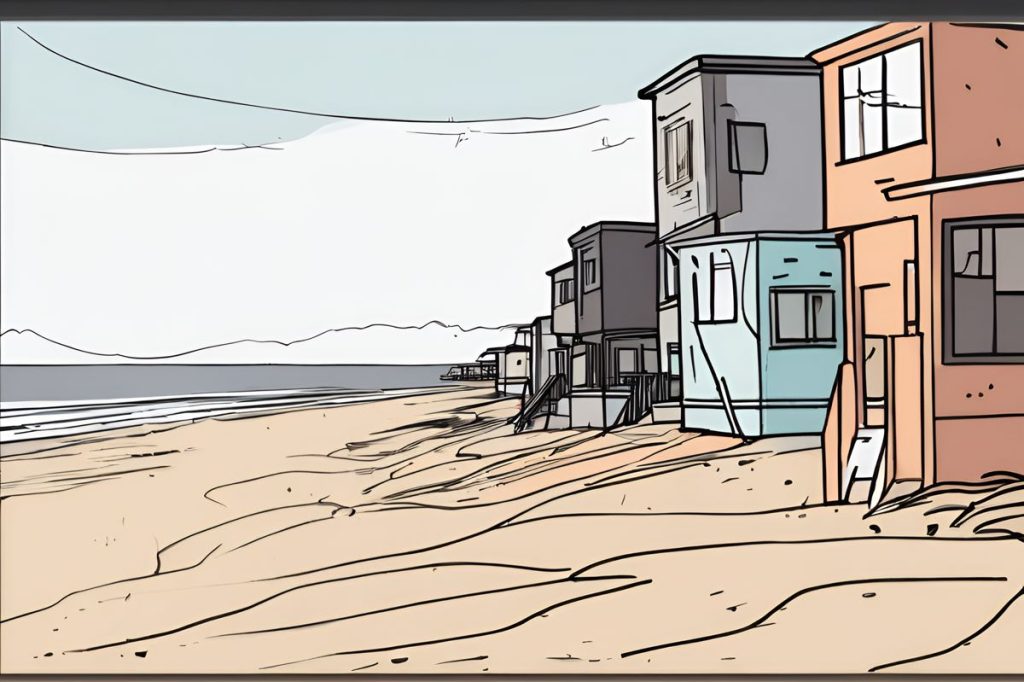The Netflix series ‘Famagusta’, depicting the 1974 Turkish invasion of Cyprus, has ignited controversy, leading the Turkish parliament to summon Netflix’s representative, Pelin Mavili, for questioning. Highlighting the delicate balance between artistic freedom and national sensitivities, the series has spurred a fierce debate between Greek and Turkish officials about historical representation and the impact of media narratives.
What is the controversy surrounding the Netflix series ‘Famagusta’?
The Netflix series ‘Famagusta’ has caused controversy by depicting the 1974 Turkish invasion of Cyprus. The Turkish parliament has summoned Netflix’s representative, concerned about its portrayal of events and its impact on Turkish subscribers. The series highlights tensions between artistic freedom and historical sensitivities in media representations.
Political Tension over Historical Representation
An upcoming Greek television series titled ‘Famagusta’, which depicts the events surrounding the 1974 Turkish invasion of Cyprus, has sparked controversy and prompted a response from the Turkish parliament. The series, set to air on Netflix, showcases the exodus of Greek Cypriots from the district of Varosha, also known as Maras, following the Turkish military actions. Huseyin Yayman, chairman of the Turkish parliamentary digital media committee and a member of the ruling AK Party, announced that Netflix’s Middle East public policy director, Pelin Mavili, has been summoned to address the committee once the parliament reconvenes.
Yayman has expressed strong views on the series, emphasizing that the Turkish nation disapproves of what they consider a distorted portrayal of the Cyprus problem. He has stated, “Cyprus is Turkish and will remain Turkish,” highlighting the significance of Varosha as the setting for the series.
Netflix and Cultural Sensitivities
The move to summon Mavili to the Turkish parliamentary committee underscores the sensitivity surrounding depictions of historical events in popular media. Yayman has openly criticized the decision to broadcast the series on Netflix, which has a substantial subscriber base in Turkey. He has expressed hope that Netflix will take into account the sensitivities of Turkey and find a solution.
However, Yayman and his party have made it clear that they are against banning and censorship, focusing instead on the importance of maintaining a balance between freedom and security. This stance reflects the complex relationship between artistic expression and historical narratives, particularly when those narratives have contemporary political implications.
The Response from Greece
The series ‘Famagusta’ has also been a topic of debate between Greek and Turkish politicians. Greek Foreign Minister Giorgos Gerapetritis has defended the series, stating that the events of the Turkish invasion are well-documented and not open to various interpretations. These statements came as a rebuttal to comments from Turkish Vice President Cevdet Yilmaz, who cautioned against digital platforms being used for propaganda purposes.
In a call for a counter-narrative, Turkish Cypriot leader Ersin Tatar has advocated for a Turkish-produced series to tell their side of the story. Previously, Turkish national broadcaster TRT had aired ‘Bir Zamanlar Kibris’ (Once Upon a Time in Cyprus) and ‘Kibris: Zafere Dogru’ (Cyprus: Towards Victory), depicting the period between 1963 and 1974 from Turkey’s perspective.
Historical Background and Media Portrayal
The island of Cyprus has been a focal point of ethnic tensions and military interventions. The 1974 Turkish invasion, which followed a Greek Cypriot coup aimed at uniting the island with Greece, resulted in the division of Cyprus into the Republic of Cyprus and the Turkish Republic of Northern Cyprus, recognized only by Turkey. The town of Varosha, once a vibrant tourist resort, was abandoned during the invasion and remains a symbol of the conflict.
The portrayal of such sensitive historical events in media and entertainment often rekindles past grievances and influences public opinion. As streaming services like Netflix become global platforms for storytelling, the content they choose to host can have significant political ramifications. The Turkish parliament’s response to the ‘Famagusta’ series highlights the ongoing challenges of reconciling historical narratives with national identities and cultural sensitivities in an increasingly connected world.
“`markdown
What is the controversy surrounding the Netflix series ‘Famagusta’?
The Netflix series ‘Famagusta’ has sparked controversy due to its portrayal of the 1974 Turkish invasion of Cyprus. The Turkish parliament summoned Netflix’s representative, Pelin Mavili, to address concerns about the series’ depiction of historical events and its potential impact on Turkish subscribers. This situation highlights the ongoing tension between artistic freedom and national sensitivities in media representation.
Why has the Turkish parliament summoned Netflix’s representative?
The Turkish parliament has summoned Netflix’s representative, Pelin Mavili, to question the streaming platform’s decision to air ‘Famagusta’. Huseyin Yayman, chairman of the Turkish parliamentary digital media committee, has criticized the series for what he describes as a distorted portrayal of the Cyprus issue. The parliament’s response underscores the sensitivity of historical narratives and their impact on national identity in Turkey.
How have Greek officials responded to the series?
Greek officials have defended the Netflix series ‘Famagusta’, asserting that the events of the Turkish invasion are well-documented and should not be subject to reinterpretation. Greek Foreign Minister Giorgos Gerapetritis has emphasized that the series reflects historical truths, in contrast to Turkish officials who have expressed concerns about its narrative. This discourse illustrates the deep political and historical divides between Greece and Turkey regarding the events in Cyprus.
What is the historical context of the events depicted in ‘Famagusta’?
The series ‘Famagusta’ focuses on the 1974 Turkish invasion of Cyprus, which occurred after a Greek Cypriot coup aimed at uniting the island with Greece. This invasion resulted in the division of Cyprus into the internationally recognized Republic of Cyprus and the Turkish Republic of Northern Cyprus, the latter of which is recognized only by Turkey. The town of Varosha, a key setting in the series, symbolizes the conflict, having been abandoned during the invasion. Such historical events remain a sensitive topic and often evoke strong emotional responses, influencing both media portrayals and public opinion.
“`

